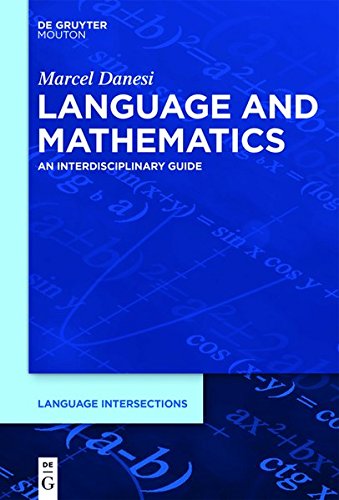

Most ebook files are in PDF format, so you can easily read them using various software such as Foxit Reader or directly on the Google Chrome browser.
Some ebook files are released by publishers in other formats such as .awz, .mobi, .epub, .fb2, etc. You may need to install specific software to read these formats on mobile/PC, such as Calibre.
Please read the tutorial at this link. https://ebooknice.com/page/post?id=faq
We offer FREE conversion to the popular formats you request; however, this may take some time. Therefore, right after payment, please email us, and we will try to provide the service as quickly as possible.
For some exceptional file formats or broken links (if any), please refrain from opening any disputes. Instead, email us first, and we will try to assist within a maximum of 6 hours.
EbookNice Team

Status:
Available0.0
0 reviews
ISBN-10 : 1614515549
ISBN-13 : 9781614515548
Author: Marcel Danesi
This book explores the many disciplinary and theoretical links between language, linguistics, and mathematics. It examines trends in linguistics, such as structuralism, conceptual metaphor theory, and other relevant theories, to show that language and mathematics have a similar structure, but differential functions, even though one without the other would not exist.
1 Common Ground
1.1 Logic
1.1.1 Formalism in linguistics and mathematics
1.1.2 Syntax
1.1.3 Formal analysis
1.1.4 The structure of logic
1.2 Computation
1.2.1 Modeling formal theories
1.2.2 Cognitive science
1.2.3 Creativity
1.3 Quantification
1.3.1 Compression
1.3.2 Probability
1.4 Neuroscience
1.4.1 Neural structure
1.4.2 Blending
1.5 Common ground
2 Logic
2.1 Formal mathematics
2.1.1 Lógos and mythos
2.1.2 Proof
2.1.3 Consistency, completeness, and decidability
2.1.4 Non-Euclidean logic
2.1.5 Cantorian logic
2.1.6 Logic and imagination
2.2 Set theory
2.2.1 Diagrams
2.2.2 Mathematical knowledge
2.3 Formal linguistics
2.3.1 Transformational-generative grammar
2.3.2 Grammar rules
2.3.3 Types of grammar
2.3.4 Formal semantics
2.4 Cognitive linguistics
2.4.1 Conceptual metaphors
2.4.2 Challenge to formalism
2.5 Formalism, logic, and meaning
2.5.1 A Gödelian critique
2.5.2 Connecting formalism and cognitivism
2.5.3 Overview
3 Computation
3.1 Algorithms and models
3.1.1 Artificial intelligence
3.1.2 Knowledge representation
3.1.3 Programs
3.2 Computability theory
3.2.1 The Traveling Salesman Problem
3.2.2 Computability
3.3 Computational linguistics
3.3.1 Machine Translation
3.3.2 Knowledge networks
3.3.3 Theoretical paradigms
3.3.4 Text theory
3.4 Natural Language Processing
3.4.1 Aspects of NLP
3.4.2 Modeling language
3.5 Computation and psychological realism
3.5.1 Learning and consciousness
3.5.2 Overview
4 Quantification
4.1 Statistics and probability
4.1.1 Basic notions
4.1.2 Statistical tests
4.2 Studying properties quantitatively
4.2.1 Benford’s Law
4.2.2 The birthday and coin-tossing problems
4.2.3 The Principle of Least Effort
4.2.4 Efficiency and economy
4.3 Corpus linguistics
4.3.1 Stylometric analysis
4.3.2 Other techniques
4.3.3 The statistics on metaphor
4.4 Probabilistic analysis
4.4.1 The Monty Hall Problem
4.4.2 The Prosecutor’s Fallacy
4.4.3 Bayesian Inference
4.4.4 General implications
4.5 Quantifying change in language
4.5.1 Lexicostatistics and glottochronology
4.5.2 Economy of change
4.6 Overview
5 Neuroscience
5.1 Neuroscientific orientations
5.1.1 Computational neuroscience
5.1.2 Connectionism
5.1.3 Modularity
5.1.4 Research on metaphor
5.2 Math cognition
5.2.1 Defining math cognition
5.2.2 Charles Peirce
5.2.3 Graphs and math cognition
5.2.4 Neuroscientific findings
5.3 Mathematics and language
5.3.1 Mathematics and figurative cognition
5.3.2 Blending theory
5.4 Concluding remarks
interdisciplinary mathematics
language and mathematics relationship
language and math
an interdisciplinary approach to math
integrating math and language arts
Tags: Language, Mathematics, Interdisciplinary Guide, Marcel Danesi